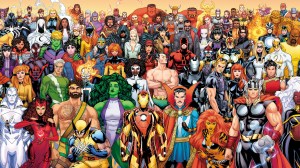From forever DMs to seasoned Dungeons & Dragons players, most D&D fans have some opinions when it comes to the game’s action economy. Many a combat has been delayed while players and DMs quibble over the rulebook, and one particular element of the game often takes center stage in these debates – the bonus action. These extra actions have the potential to give players more options during combat, sometimes to the great frustration of DMs or even fellow party members. Recently, the man who helped invent bonus actions revealed why he doesn’t use them in his own D&D games.
Videos by ComicBook.com
Mike Mearls was one of the game designers for D&D 4e and worked with Wizards of the Coast to continue developing the game until 2023, right up through 5e. That means he’s had a hand in much of what modern players know of Dungeons & Dragons today and, according to his recent thread on X, he’s taking full blame for bonus actions. According to Mearls, they’ve never fulfilled their original goal and aren’t welcome at his personal D&D table.
In the initial post, Mearls claims that bonus actions are “hot garbage,” going on to say he’s allowed to say this since they were his idea. For those who adore using bonus actions to, say, enter a rage or transform into a bear, this might be a hot take. But Mearls has his reasons for why bonus actions break the intended action economy.
Apparently, bonus actions were originally intended to keep players in line when multiclassing, preventing them from combining multiple class options during their turns. They were developed as an evolution of 3e’s minor turns, taking a familiar mechanic and adapting it for the design team’s vision for D&D‘s future. However, the creators never intended for bonus actions to be a routine part of the standard player turn during combat. But it’s become pretty common for players to view their list of available bonus actions as a mandatory part of every turn, essentially becoming a second action at many tables. This, according to Mearls, means that bonus actions have completely failed at what they were supposed to do.
Dungeons & Dragons Fans Have Mixed Feelings About Bonus Actions
Looking back, the inventor of bonus actions thinks it would have made more sense to build these bonuses into standard actions. As an example, he suggests that going into a rage for Barbarians shouldn’t be a bonus action, but an action that comes with a free set of attacks attached. This results in less flexibility for players but would keep the action economy streamlined as intended.

RELATED: Dungeons & Dragons’ Lead Designer Explains Philosophy Behind Rules Changes
Overall, D&D fans have questions about what the game might look like without bonus actions, which have been a part of the game for long enough that many players can’t imagine it without them. Would removing bonus actions help speed up combat, giving players fewer decisions to make in those 6-second turns that can stretch on for ages? Others worry that taking away bonus actions would limit the flexibility of certain classes, taking away the fun of Bardic Inspiration and other bonus actions that add layers to player options during combat. And of course, fans of alternative fantasy TTRPG system Pathfinder can’t stop pointing out that the game’s 2E system uses a simplified 3-action turn that more or less solves the bonus action confusion.
Like just about anything in D&D, bonus actions have their stalwart defenders and detractors. Some gamers would love to see them leave the rules, noting that “they get abused a lot,” especially for certain classes. Others feel that they add more complexity to combat, which can otherwise feel a bit repetitive with players rolling to attack time and time again. Regardless of where players – and even former creators – land, bonus actions look poised to continue on into D&D at least for the next set of rules. For those who truly can’t stand them, there’s always homebrew rule modifications.








